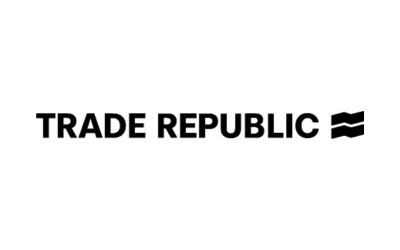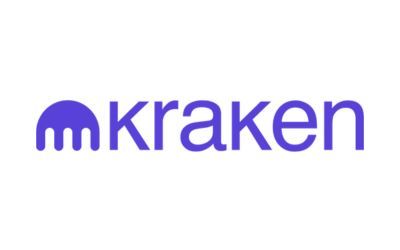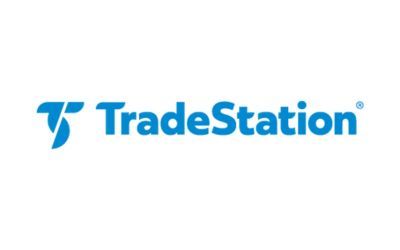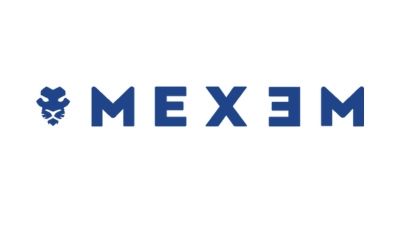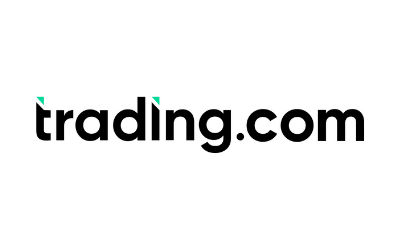Choosing an online broker or platform depends mainly on security, availability of specific financial products, costs, and suitability for your objectives (long-term investment or active trading). On this page, you can search, filter, and compare regulated brokers (or brokerage accounts) based on your desired markets (such as stocks, ETFs, forex, cryptocurrencies, CFDs), your level of experience (beginner/professional), your main strategy type, and your preferred platform (MetaTrader, cTrader, TradingView, and others).
How we choose
Our broker rankings are based on a consistent review process conducted by InvestinGoal researchers and editors. We spend weeks evaluating each broker’s offering and user experience. We examine legal documents and fee schedules, verify regulatory status, and test platforms using demo accounts and, when appropriate, live accounts. We focus on what matters in real use: account opening and fund deposits, trading tools and conditions, costs, withdrawals, and customer support, as well as security factors such as regulation, client fund segregation, and investor protection, where applicable. Learn more about InvestinGoal methodology.
Why trust InvestinGoal
InvestinGoal is an independent online broker comparison platform and learning center for traders and investors. We focus on what really affects trading and investment results: regulation, real costs, access to products, and platform reliability, so you can choose a broker that suits your goals, not just marketing promises. Our rankings start with security and regulation. We check the broker’s regulatory status and investor protections in the regions where it operates. Then we compare costs along with execution characteristics, platform tools, and market availability. We keep this content transparent and editorially independent. We may earn a commission if you open an account through our links, but we do not sell placements, and compensation does not affect our evaluation criteria. Learn more about why you can trust InvestinGoal.
Use the filters in the search panel below to find the online brokers and platforms for your trading and investing purposes.
-
Commissions: very low eToro charges very low commissions on trading and investing compared to the industry average.
Regulated: ✓ eToro is supervised by one or more trustworthy financial regulators.
61% of retail investor accounts lose money when trading CFDs with this provider. You should consider whether you can afford to take the high risk of losing your money.Visit eToroMarketseToro offers trading on the following assets: CFD, Forex, Stocks, Crypto.TypeeToro is good for beginners, paper trading.StrategyeToro supports the following trading styles: Day trading, Long term investing, Copy trading.PlatformseToro offers the following trading/investing platforms: eToro platform. -
Commissions: low IG charges low commissions on trading and investing compared to the industry average.
Regulated: ✓ IG is supervised by one or more trustworthy financial regulators.
67% of retail investor accounts lose money when trading spread bets and CFDs with this provider. You should consider whether can afford to take the high risk of losing your money.Visit IGMarketsIG offers trading on the following assets: CFD, Forex, Stocks, Options, Futures, Spread betting.TypeIG is good for beginners, professional traders, paper trading.StrategyIG supports the following trading styles: Day trading, Algo trading, Long term investing.PlatformsIG offers the following trading/investing platforms: MetaTrader, TradingView, ProRealTime, IG platform. -
Commissions: low Pepperstone charges low commissions on trading and investing compared to the industry average.
Regulated: ✓ Pepperstone is supervised by one or more trustworthy financial regulators.
75–95% of retail investor accounts lose money when trading CFDsVisit PepperstoneMarketsPepperstone offers trading on the following assets: CFD, Forex, Futures, Spread betting.TypePepperstone is good for professional traders, paper trading.StrategyPepperstone supports the following trading styles: Day trading, Algo trading, Copy trading.PlatformsPepperstone offers the following trading/investing platforms: MetaTrader, cTrader, TradingView, Pepperstone platform. -
Commissions: low IC Markets charges low commissions on trading and investing compared to the industry average.
Regulated: ✓ IC Markets is supervised by one or more trustworthy financial regulators.
74-89% of retail CFD accounts lose moneyVisit IC MarketsMarketsIC Markets offers trading on the following assets: CFD, Forex, Futures.TypeIC Markets is good for professional traders, paper trading.StrategyIC Markets supports the following trading styles: Day trading, Algo trading.PlatformsIC Markets offers the following trading/investing platforms: MetaTrader, cTrader, IC Markets (Global) platform. -
Commissions: very low XM charges very low commissions on trading and investing compared to the industry average.
Regulated: ✓ XM is supervised by one or more trustworthy financial regulators.
72,82% of retail CFD accounts lose moneyVisit XMMarketsXM offers trading on the following assets: CFD, Forex, Futures.TypeXM is good for beginners, paper trading.StrategyXM supports the following trading styles: Day trading, Algo trading.PlatformsXM offers the following trading/investing platforms: MetaTrader, XM platform. -
Commissions: very low AvaTrade charges very low commissions on trading and investing compared to the industry average.
Regulated: ✓ AvaTrade is supervised by one or more trustworthy financial regulators.
79% of retail CFD accounts lose moneyVisit AvaTradeMarketsAvaTrade offers trading on the following assets: CFD, Forex, Options, Futures, Spread betting.TypeAvaTrade is good for beginners, paper trading.StrategyAvaTrade supports the following trading styles: Day trading, Algo trading, Copy trading.PlatformsAvaTrade offers the following trading/investing platforms: MetaTrader, AvaTrade platform. -
Commissions: low FP Markets charges low commissions on trading and investing compared to the industry average.
Regulated: ✓ FP Markets is supervised by one or more trustworthy financial regulators.
74-89% of retail CFD accounts lose moneyVisit FP MarketsMarketsFP Markets offers trading on the following assets: CFD, Forex, Futures.TypeFP Markets is good for beginners, professional traders, paper trading.StrategyFP Markets supports the following trading styles: Day trading, Algo trading.PlatformsFP Markets offers the following trading/investing platforms: MetaTrader, cTrader, FP Markets platform. -
Commissions: very low Interactive Brokers charges very low commissions on trading and investing compared to the industry average.
Regulated: ✓ Interactive Brokers is supervised by one or more trustworthy financial regulators.
74-89% of retail CFD accounts lose moneyVisit Interactive BrokersMarketsInteractive Brokers offers trading on the following assets: CFD, Forex, Stocks, Crypto, Options, Futures.TypeInteractive Brokers is good for professional traders, paper trading.StrategyInteractive Brokers supports the following trading styles: Day trading, Algo trading, Long term investing.PlatformsInteractive Brokers offers the following trading/investing platforms: NinjaTrader, TradingView, ProRealTime, Trader Workstation. -
Commissions: low Fusion Markets charges low commissions on trading and investing compared to the industry average.
Regulated: ✓ Fusion Markets is supervised by one or more trustworthy financial regulators.
Your capital is at riskVisit Fusion MarketsMarketsFusion Markets offers trading on the following assets: CFD, Forex, Futures.TypeFusion Markets is good for professional traders, paper trading.StrategyFusion Markets supports the following trading styles: Day trading, Algo trading.PlatformsFusion Markets offers the following trading/investing platforms: MetaTrader, cTrader, Fusion Markets platform. -
Commissions: very low HFM charges very low commissions on trading and investing compared to the industry average.
Regulated: ✓ HFM is supervised by one or more trustworthy financial regulators.
70.51% of retail CFD accounts lose moneyVisit HFMMarketsHFM offers trading on the following assets: CFD, Forex, Futures.TypeHFM is good for beginners, paper trading.StrategyHFM supports the following trading styles: Day trading, Algo trading.PlatformsHFM offers the following trading/investing platforms: MetaTrader, HFM platform. -
Commissions: very low Plus500 charges very low commissions on trading and investing compared to the industry average.
Regulated: ✓ Plus500 is supervised by one or more trustworthy financial regulators.
82% of retail CFD accounts lose moneyVisit Plus500MarketsPlus500 offers trading on the following assets: CFD, Forex, Stocks, Futures, Spread betting.TypePlus500 is good for beginners, paper trading.StrategyPlus500 supports the following trading styles: Day trading, Long term investing.PlatformsPlus500 offers the following trading/investing platforms: Plus500 platform. -
Commissions: low Binance charges low commissions on trading and investing compared to the industry average.
Regulated: ✓ Binance is supervised by one or more trustworthy financial regulators.
MarketsBinance offers trading on the following assets: Crypto, Options, Futures.TypeBinance is good for beginners, professional traders, paper trading.StrategyBinance supports the following trading styles: Day trading, Algo trading, Long term investing, Copy trading.PlatformsBinance offers the following trading/investing platforms: Binance platform. -
Commissions: very low FxPro charges very low commissions on trading and investing compared to the industry average.
Regulated: ✓ FxPro is supervised by one or more trustworthy financial regulators.
72.87% of retail CFD accounts lose moneyVisit FxProMarketsFxPro offers trading on the following assets: CFD, Forex, Futures.TypeFxPro is good for beginners, professional traders, paper trading.StrategyFxPro supports the following trading styles: Day trading, Algo trading.PlatformsFxPro offers the following trading/investing platforms: MetaTrader, cTrader, FxPro platform. -
Commissions: very low XTB charges very low commissions on trading and investing compared to the industry average.
Regulated: ✓ XTB is supervised by one or more trustworthy financial regulators.
69-80% of retail CFD accounts lose moneyVisit XTBMarketsXTB offers trading on the following assets: CFD, Forex, Stocks, Futures.TypeXTB is good for beginners, professional traders, paper trading.StrategyXTB supports the following trading styles: Day trading, Long term investing.PlatformsXTB offers the following trading/investing platforms: xStation 5. -
Commissions: very low CMC Markets charges very low commissions on trading and investing compared to the industry average.
Regulated: ✓ CMC Markets is supervised by one or more trustworthy financial regulators.
78% of retail investor accounts lose money when spread betting and/or trading CFDs with this provider.Visit CMC MarketsMarketsCMC Markets offers trading on the following assets: CFD, Forex, Stocks, Futures, Spread betting.TypeCMC Markets is good for beginners, professional traders, paper trading.StrategyCMC Markets supports the following trading styles: Day trading, Algo trading, Long term investing.PlatformsCMC Markets offers the following trading/investing platforms: MetaTrader, Next Generation. -
Commissions: medium Saxo charges medium commissions on trading and investing compared to the industry average.
Regulated: ✓ Saxo is supervised by one or more trustworthy financial regulators.
65% of retail CFD accounts lose moneyVisit SaxoMarketsSaxo offers trading on the following assets: CFD, Forex, Stocks, Options, Futures.TypeSaxo is good for professional traders, paper trading.StrategySaxo supports the following trading styles: Day trading, Algo trading, Long term investing.PlatformsSaxo offers the following trading/investing platforms: TradingView, ProRealTime, SaxoTraderPRO. -
Commissions: very low Fidelity charges very low commissions on trading and investing compared to the industry average.
Regulated: ✓ Fidelity is supervised by one or more trustworthy financial regulators.
Visit FidelityTrading is risky, you can lose money
MarketsFidelity offers trading on the following assets: Stocks, Crypto, Options, Futures.TypeFidelity is good for beginners, professional traders.StrategyFidelity supports the following trading styles: Day trading, Long term investing.PlatformsFidelity offers the following trading/investing platforms: Active Trader Pro. -
Commissions: very low FBS charges very low commissions on trading and investing compared to the industry average.
Regulated: ✓ FBS is supervised by one or more trustworthy financial regulators.
74-89% of retail CFD accounts lose moneyVisit FBSMarketsFBS offers trading on the following assets: CFD, Forex, Futures.TypeFBS is good for beginners, paper trading.StrategyFBS supports the following trading styles: Day trading, Algo trading.PlatformsFBS offers the following trading/investing platforms: MetaTrader, FBS platform. -
Commissions: very low Capital.com charges very low commissions on trading and investing compared to the industry average.
Regulated: ✓ Capital.com is supervised by one or more trustworthy financial regulators.
MarketsCapital.com offers trading on the following assets: CFD, Forex, Futures.TypeCapital.com is good for beginners, paper trading.StrategyCapital.com supports the following trading styles: Day trading, Algo trading.PlatformsCapital.com offers the following trading/investing platforms: MetaTrader, TradingView, Capital.com platform. -
Commissions: low NinjaTrader charges low commissions on trading and investing compared to the industry average.
Regulated: ✓ NinjaTrader is supervised by one or more trustworthy financial regulators.
MarketsNinjaTrader offers trading on the following assets: Options, Futures.TypeNinjaTrader is good for professional traders, paper trading.StrategyNinjaTrader supports the following trading styles: Day trading, Algo trading.PlatformsNinjaTrader offers the following trading/investing platforms: NinjaTrader, TradingView, NinjaTrader Desktop. -
Commissions: very low ActivTrades charges very low commissions on trading and investing compared to the industry average.
Regulated: ✓ ActivTrades is supervised by one or more trustworthy financial regulators.
75.7% of retail CFD accounts lose moneyVisit ActivTradesMarketsActivTrades offers trading on the following assets: CFD, Forex, Futures, Spread betting.TypeActivTrades is good for professional traders, paper trading.StrategyActivTrades supports the following trading styles: Day trading, Algo trading.PlatformsActivTrades offers the following trading/investing platforms: MetaTrader, TradingView, ActivTrader. -
Commissions: very low OANDA charges very low commissions on trading and investing compared to the industry average.
Regulated: ✓ OANDA is supervised by one or more trustworthy financial regulators.
73.5% of retail CFD accounts lose moneyVisit OANDAMarketsOANDA offers trading on the following assets: CFD, Forex, Crypto, Futures.TypeOANDA is good for beginners, professional traders, paper trading.StrategyOANDA supports the following trading styles: Day trading, Algo trading.PlatformsOANDA offers the following trading/investing platforms: MetaTrader, TradingView, OANDA Trade. -
Commissions: very low Axi charges very low commissions on trading and investing compared to the industry average.
Regulated: ✓ Axi is supervised by one or more trustworthy financial regulators.
72.4% of retail CFD accounts lose moneyVisit AxiMarketsAxi offers trading on the following assets: CFD, Forex, Futures.TypeAxi is good for beginners, paper trading.StrategyAxi supports the following trading styles: Day trading, Algo trading.PlatformsAxi offers the following trading/investing platforms: MetaTrader, Axi platform. -
Commissions: very low DEGIRO charges very low commissions on trading and investing compared to the industry average.
Regulated: ✓ DEGIRO is supervised by one or more trustworthy financial regulators.
(Investing involves risk of loss)Visit DEGIROMarketsDEGIRO offers trading on the following assets: Stocks, Options.TypeDEGIRO is good for beginners.StrategyDEGIRO supports the following trading styles: Long term investing.PlatformsDEGIRO offers the following trading/investing platforms: DEGIRO platform. -
Commissions: very low Forex.com charges very low commissions on trading and investing compared to the industry average.
Regulated: ✓ Forex.com is supervised by one or more trustworthy financial regulators.
73%-77% of retail investor accounts lose money when trading CFDs with this providerVisit Forex.comMarketsForex.com offers trading on the following assets: CFD, Forex, Futures, Spread betting.TypeForex.com is good for beginners, professional traders, paper trading.StrategyForex.com supports the following trading styles: Day trading, Algo trading.PlatformsForex.com offers the following trading/investing platforms: MetaTrader, NinjaTrader, TradingView, FOREX.com Desktop Platform. -
Commissions: medium Crypto.com charges medium commissions on trading and investing compared to the industry average.
Regulated: ✓ Crypto.com is supervised by one or more trustworthy financial regulators.
MarketsCrypto.com offers trading on the following assets: Crypto, Options, Futures.TypeCrypto.com is good for beginners.StrategyCrypto.com supports the following trading styles: Day trading, Long term investing.PlatformsCrypto.com offers the following trading/investing platforms: Crypto.com Exchange. -
Commissions: high Coinbase charges high commissions on trading and investing compared to the industry average.
Regulated: ✓ Coinbase is supervised by one or more trustworthy financial regulators.
MarketsCoinbase offers trading on the following assets: Crypto, Options, Futures.TypeCoinbase is good for beginners, professional traders.StrategyCoinbase supports the following trading styles: Day trading, Algo trading, Long term investing.PlatformsCoinbase offers the following trading/investing platforms: NinjaTrader, TradingView, Coinbase Advanced Trade. -
Commissions: very low Robinhood charges very low commissions on trading and investing compared to the industry average.
Regulated: ✓ Robinhood is supervised by one or more trustworthy financial regulators.
(Your money is at risk)Visit RobinhoodMarketsRobinhood offers trading on the following assets: Stocks, Crypto, Options.TypeRobinhood is good for beginners.StrategyRobinhood supports the following trading styles: Day trading, Long term investing.PlatformsRobinhood offers the following trading/investing platforms: Robinhood Legend. -
Commissions: low Blackbull Markets charges low commissions on trading and investing compared to the industry average.
Regulated: ✓ Blackbull Markets is supervised by one or more trustworthy financial regulators.
MarketsBlackbull Markets offers trading on the following assets: CFD, Forex, Futures.TypeBlackbull Markets is good for professional traders, paper trading.StrategyBlackbull Markets supports the following trading styles: Day trading, Algo trading, Long term investing.PlatformsBlackbull Markets offers the following trading/investing platforms: MetaTrader, cTrader, TradingView, Blackbull Markets platform. -
Commissions: very low Trade Republic charges very low commissions on trading and investing compared to the industry average.
Regulated: ✓ Trade Republic is supervised by one or more trustworthy financial regulators.
MarketsTrade Republic offers trading on the following assets: Stocks, Crypto.TypeTrade Republic is good for beginners.StrategyTrade Republic supports the following trading styles: Long term investing.PlatformsTrade Republic offers the following trading/investing platforms: Trade Republic platform. -
Commissions: very low Eightcap charges very low commissions on trading and investing compared to the industry average.
Regulated: ✓ Eightcap is supervised by one or more trustworthy financial regulators.
MarketsEightcap offers trading on the following assets: CFD, Forex, Futures.TypeEightcap is good for beginners, paper trading.StrategyEightcap supports the following trading styles: Day trading, Algo trading.PlatformsEightcap offers the following trading/investing platforms: MetaTrader, TradingView, Eightcap platform. -
Commissions: low Exante charges low commissions on trading and investing compared to the industry average.
Regulated: ✓ Exante is supervised by one or more trustworthy financial regulators.
MarketsExante offers trading on the following assets: CFD, Forex, Stocks, Options, Futures.TypeExante is good for professional traders.StrategyExante supports the following trading styles: Day trading, Algo trading, Long term investing.PlatformsExante offers the following trading/investing platforms: Exante platform. -
Commissions: very low City Index charges very low commissions on trading and investing compared to the industry average.
Regulated: ✓ City Index is supervised by one or more trustworthy financial regulators.
MarketsCity Index offers trading on the following assets: CFD, Forex, Futures, Spread betting.TypeCity Index is good for beginners, professional traders, paper trading.StrategyCity Index supports the following trading styles: Day trading, Algo trading.PlatformsCity Index offers the following trading/investing platforms: MetaTrader, NinjaTrader, TradingView, City Index platform. -
Commissions: very low FXCM charges very low commissions on trading and investing compared to the industry average.
Regulated: ✓ FXCM is supervised by one or more trustworthy financial regulators.
66% of retail CFD accounts lose moneyVisit FXCMMarketsFXCM offers trading on the following assets: CFD, Forex, Futures, Spread betting.TypeFXCM is good for beginners, professional traders, paper trading.StrategyFXCM supports the following trading styles: Day trading, Algo trading, Copy trading.PlatformsFXCM offers the following trading/investing platforms: MetaTrader, NinjaTrader, TradingView, Trading Station. -
Commissions: low Kraken charges low commissions on trading and investing compared to the industry average.
Regulated: ✓ Kraken is supervised by one or more trustworthy financial regulators.
MarketsKraken offers trading on the following assets: Crypto, Options, Futures.TypeKraken is good for beginners, professional traders, paper trading.StrategyKraken supports the following trading styles: Day trading, Algo trading, Long term investing.PlatformsKraken offers the following trading/investing platforms: Kraken Pro. -
Commissions: very low TradeStation charges very low commissions on trading and investing compared to the industry average.
Regulated: ✓ TradeStation is supervised by one or more trustworthy financial regulators.
(Your money is at risk)Visit TradeStationMarketsTradeStation offers trading on the following assets: Stocks, Crypto, Options, Futures.TypeTradeStation is good for professional traders, paper trading.StrategyTradeStation supports the following trading styles: Day trading, Algo trading, Long term investing.PlatformsTradeStation offers the following trading/investing platforms: TradingView, TradeStation platform. -
Commissions: very low MEXEM charges very low commissions on trading and investing compared to the industry average.
Regulated: ✓ MEXEM is supervised by one or more trustworthy financial regulators.
MarketsMEXEM offers trading on the following assets: CFD, Forex, Stocks, Crypto, Options, Futures.TypeMEXEM is good for professional traders, paper trading.StrategyMEXEM supports the following trading styles: Day trading, Algo trading, Long term investing.PlatformsMEXEM offers the following trading/investing platforms: Trader Workstation. -
Commissions: very low Trading 212 charges very low commissions on trading and investing compared to the industry average.
Regulated: ✓ Trading 212 is supervised by one or more trustworthy financial regulators.
83% of retail CFD accounts lose moneyVisit Trading 212MarketsTrading 212 offers trading on the following assets: CFD, Forex, Stocks.TypeTrading 212 is good for beginners, paper trading.StrategyTrading 212 supports the following trading styles: Day trading, Long term investing.PlatformsTrading 212 offers the following trading/investing platforms: Trading 212 platform. -
Commissions: very low Moneta Markets charges very low commissions on trading and investing compared to the industry average.
Regulated: × Moneta Markets is not supervised by any trustworthy financial regulators.
74-89% of retail CFD accounts lose moneyVisit Moneta MarketsMarketsMoneta Markets offers trading on the following assets: CFD, Forex, Futures.TypeMoneta Markets is good for beginners, paper trading.StrategyMoneta Markets supports the following trading styles: Day trading, Algo trading.PlatformsMoneta Markets offers the following trading/investing platforms: MetaTrader, TradingView, Moneta Markets platform. -
Commissions: very low OctaFX charges very low commissions on trading and investing compared to the industry average.
Regulated: ✓ OctaFX is supervised by one or more trustworthy financial regulators.
MarketsOctaFX offers trading on the following assets: CFD, Forex, Futures.TypeOctaFX is good for beginners, paper trading.StrategyOctaFX supports the following trading styles: Day trading, Algo trading.PlatformsOctaFX offers the following trading/investing platforms: MetaTrader, OctaFX platform. -
Commissions: very low Scalable Capital charges very low commissions on trading and investing compared to the industry average.
Regulated: ✓ Scalable Capital is supervised by one or more trustworthy financial regulators.
MarketsScalable Capital offers trading on the following assets: Stocks.TypeScalable Capital is good for beginners.StrategyScalable Capital supports the following trading styles: Long term investing.PlatformsScalable Capital offers the following trading/investing platforms: Scalable Capital platform. -
Commissions: low Darwinex charges low commissions on trading and investing compared to the industry average.
Regulated: ✓ Darwinex is supervised by one or more trustworthy financial regulators.
MarketsDarwinex offers trading on the following assets: CFD, Forex, Futures.TypeDarwinex is good for beginners, professional traders, paper trading.StrategyDarwinex supports the following trading styles: Day trading, Algo trading, Long term investing, Copy trading.PlatformsDarwinex offers the following trading/investing platforms: MetaTrader, Darwinex platform. -
Commissions: low Tickmill charges low commissions on trading and investing compared to the industry average.
Regulated: ✓ Tickmill is supervised by one or more trustworthy financial regulators.
79% of retail CFD accounts lose moneyVisit TickmillMarketsTickmill offers trading on the following assets: CFD, Forex, Futures.TypeTickmill is good for professional traders, paper trading.StrategyTickmill supports the following trading styles: Day trading, Algo trading.PlatformsTickmill offers the following trading/investing platforms: MetaTrader, cTrader, Tickmill platform. -
Commissions: very low Trading.com charges very low commissions on trading and investing compared to the industry average.
Regulated: ✓ Trading.com is supervised by one or more trustworthy financial regulators.
MarketsTrading.com offers trading on the following assets: CFD, Forex, Futures.TypeTrading.com is good for beginners, paper trading.StrategyTrading.com supports the following trading styles: Day trading, Algo trading.PlatformsTrading.com offers the following trading/investing platforms: MetaTrader, Trading.com platform. -
Commissions: low AAAFX charges low commissions on trading and investing compared to the industry average.
Regulated: ✓ AAAFX is supervised by one or more trustworthy financial regulators.
MarketsAAAFX offers trading on the following assets: CFD, Forex, Futures.TypeAAAFX is good for beginners, paper trading.StrategyAAAFX supports the following trading styles: Day trading, Algo trading, Copy trading.PlatformsAAAFX offers the following trading/investing platforms: MetaTrader, AAAFX platform. -
Commissions: very low Admirals charges very low commissions on trading and investing compared to the industry average.
Regulated: ✓ Admirals is supervised by one or more trustworthy financial regulators.
76% of retail CFD accounts lose moneyVisit AdmiralsMarketsAdmirals offers trading on the following assets: CFD, Forex, Stocks, Futures, Spread betting.TypeAdmirals is good for beginners, paper trading.StrategyAdmirals supports the following trading styles: Day trading, Algo trading, Long term investing.PlatformsAdmirals offers the following trading/investing platforms: MetaTrader, Admirals platform. -
Commissions: very low ADSS charges very low commissions on trading and investing compared to the industry average.
Regulated: ✓ ADSS is supervised by one or more trustworthy financial regulators.
74-89% of retail CFD accounts lose moneyVisit ADSSMarketsADSS offers trading on the following assets: CFD, Forex, Futures.TypeADSS is good for beginners, paper trading.StrategyADSS supports the following trading styles: Day trading, Algo trading.PlatformsADSS offers the following trading/investing platforms: MetaTrader, ADSS platform. -
Commissions: very low Alpari charges very low commissions on trading and investing compared to the industry average.
Regulated: × Alpari is not supervised by any trustworthy financial regulators.
Visit Alpari74-89% of retail CFD accounts lose money
MarketsAlpari offers trading on the following assets: CFD, Forex, Futures.TypeAlpari is good for beginners, paper trading.StrategyAlpari supports the following trading styles: Day trading, Algo trading.PlatformsAlpari offers the following trading/investing platforms: MetaTrader, Alpari platform. -
Commissions: very low Amana Capital charges very low commissions on trading and investing compared to the industry average.
Regulated: ✓ Amana Capital is supervised by one or more trustworthy financial regulators.
Visit Amana CapitalLeverage may expose you to significant losses
MarketsAmana Capital offers trading on the following assets: CFD, Forex, Futures.TypeAmana Capital is good for beginners, paper trading.StrategyAmana Capital supports the following trading styles: Day trading, Algo trading.PlatformsAmana Capital offers the following trading/investing platforms: MetaTrader, Amana Capital platform. -
Commissions: very low ATFX charges very low commissions on trading and investing compared to the industry average.
Regulated: ✓ ATFX is supervised by one or more trustworthy financial regulators.
MarketsATFX offers trading on the following assets: CFD, Forex, Futures.TypeATFX is good for beginners, paper trading.StrategyATFX supports the following trading styles: Day trading, Algo trading.PlatformsATFX offers the following trading/investing platforms: MetaTrader, ATFX platform. -
Commissions: very low Axiory charges very low commissions on trading and investing compared to the industry average.
Regulated: × Axiory is not supervised by any trustworthy financial regulators.
Your capital is at riskVisit AxioryMarketsAxiory offers trading on the following assets: CFD, Forex, Futures.TypeAxiory is good for beginners, paper trading.StrategyAxiory supports the following trading styles: Day trading, Algo trading.PlatformsAxiory offers the following trading/investing platforms: MetaTrader, cTrader, Axiory platform. -
Commissions: very low BDSwiss charges very low commissions on trading and investing compared to the industry average.
Regulated: ✓ BDSwiss is supervised by one or more trustworthy financial regulators.
Your capital is at risk.Visit BDSwissMarketsBDSwiss offers trading on the following assets: CFD, Forex, Futures.TypeBDSwiss is good for beginners, paper trading.StrategyBDSwiss supports the following trading styles: Day trading, Algo trading.PlatformsBDSwiss offers the following trading/investing platforms: MetaTrader, BDSwiss platform. -
Commissions: medium Bitpanda charges medium commissions on trading and investing compared to the industry average.
Regulated: ✓ Bitpanda is supervised by one or more trustworthy financial regulators.
MarketsBitpanda offers trading on the following assets: Crypto.TypeBitpanda is good for beginners.StrategyBitpanda supports the following trading styles: Day trading, Long term investing.PlatformsBitpanda offers the following trading/investing platforms: Bitpanda platform. -
Commissions: low Bybit charges low commissions on trading and investing compared to the industry average.
Regulated: × Bybit is not supervised by any trustworthy financial regulators.
MarketsBybit offers trading on the following assets: Crypto, Options, Futures.TypeBybit is good for beginners, professional traders, paper trading.StrategyBybit supports the following trading styles: Day trading, Algo trading, Long term investing.PlatformsBybit offers the following trading/investing platforms: Bybit platform. -
Commissions: very low CAPEX.com charges very low commissions on trading and investing compared to the industry average.
Regulated: ✓ CAPEX.com is supervised by one or more trustworthy financial regulators.
MarketsCAPEX.com offers trading on the following assets: CFD, Forex, Futures.TypeCAPEX.com is good for beginners, paper trading.StrategyCAPEX.com supports the following trading styles: Day trading, Algo trading.PlatformsCAPEX.com offers the following trading/investing platforms: MetaTrader, CAPEX.com platform. -
Commissions: low CapTrader charges low commissions on trading and investing compared to the industry average.
Regulated: ✓ CapTrader is supervised by one or more trustworthy financial regulators.
MarketsCapTrader offers trading on the following assets: CFD, Forex, Stocks, Crypto, Options, Futures.TypeCapTrader is good for beginners, professional traders, paper trading.StrategyCapTrader supports the following trading styles: Day trading, Algo trading, Long term investing.PlatformsCapTrader offers the following trading/investing platforms: Trader Workstation. -
Commissions: low Dukascopy charges low commissions on trading and investing compared to the industry average.
Regulated: ✓ Dukascopy is supervised by one or more trustworthy financial regulators.
Visit Dukascopy83% of retail CFD accounts lose money
MarketsDukascopy offers trading on the following assets: CFD, Forex, Options, Futures.TypeDukascopy is good for professional traders, paper trading.StrategyDukascopy supports the following trading styles: Day trading, Algo trading, Long term investing.PlatformsDukascopy offers the following trading/investing platforms: MetaTrader, JForex. -
Commissions: very low EasyMarkets charges very low commissions on trading and investing compared to the industry average.
Regulated: ✓ EasyMarkets is supervised by one or more trustworthy financial regulators.
75% of retail CFD accounts lose moneyVisit EasyMarketsMarketsEasyMarkets offers trading on the following assets: CFD, Forex, Options, Futures.TypeEasyMarkets is good for beginners, paper trading.StrategyEasyMarkets supports the following trading styles: Day trading, Algo trading.PlatformsEasyMarkets offers the following trading/investing platforms: MetaTrader, TradingView, EasyMarkets platform. -
Commissions: medium EGM Securities charges medium commissions on trading and investing compared to the industry average.
Regulated: × EGM Securities is not supervised by any trustworthy financial regulators.
MarketsEGM Securities offers trading on the following assets: CFD, Forex, Futures.TypeEGM Securities is good for beginners, paper trading.StrategyEGM Securities supports the following trading styles: Day trading, Algo trading.PlatformsEGM Securities offers the following trading/investing platforms: MetaTrader, EGM Securities platform. -
Commissions: very low Equiti Capital charges very low commissions on trading and investing compared to the industry average.
Regulated: ✓ Equiti Capital is supervised by one or more trustworthy financial regulators.
Visit Equiti Capital73.07% of retail CFD accounts lose money
MarketsEquiti Capital offers trading on the following assets: CFD, Forex, Futures.TypeEquiti Capital is good for beginners, paper trading.StrategyEquiti Capital supports the following trading styles: Day trading, Algo trading.PlatformsEquiti Capital offers the following trading/investing platforms: MetaTrader, Equiti Capital platform. -
Commissions: very low Exness charges very low commissions on trading and investing compared to the industry average.
Regulated: ✓ Exness is supervised by one or more trustworthy financial regulators.
Visit Exness54.3% of retail CFD accounts lose money
MarketsExness offers trading on the following assets: CFD, Forex, Futures.TypeExness is good for beginners, professional traders, paper trading.StrategyExness supports the following trading styles: Day trading, Algo trading.PlatformsExness offers the following trading/investing platforms: MetaTrader, Exness Terminal. -
Commissions: very low Fibo Group charges very low commissions on trading and investing compared to the industry average.
Regulated: × Fibo Group is not supervised by any trustworthy financial regulators.
Visit Fibo Group66% of retail CFD accounts lose money
MarketsFibo Group offers trading on the following assets: CFD, Forex, Futures.TypeFibo Group is good for beginners, paper trading.StrategyFibo Group supports the following trading styles: Day trading, Algo trading.PlatformsFibo Group offers the following trading/investing platforms: MetaTrader, Fibo Group platform. -
Commissions: very low Fondex charges very low commissions on trading and investing compared to the industry average.
Regulated: ✓ Fondex is supervised by one or more trustworthy financial regulators.
MarketsFondex offers trading on the following assets: CFD, Forex, Futures.TypeFondex is good for beginners, paper trading.StrategyFondex supports the following trading styles: Day trading, Algo trading.PlatformsFondex offers the following trading/investing platforms: cTrader, Fondex platform. -
Commissions: very low FXDD charges very low commissions on trading and investing compared to the industry average.
Regulated: ✓ FXDD is supervised by one or more trustworthy financial regulators.
73.6% of retail CFD accounts lose moneyVisit FXDDMarketsFXDD offers trading on the following assets: CFD, Forex, Futures.TypeFXDD is good for beginners, paper trading.StrategyFXDD supports the following trading styles: Day trading, Algo trading.PlatformsFXDD offers the following trading/investing platforms: MetaTrader, FXDD platform. -
Commissions: low FXOpen charges low commissions on trading and investing compared to the industry average.
Regulated: ✓ FXOpen is supervised by one or more trustworthy financial regulators.
74-89% of retail CFD accounts lose moneyVisit FXOpenMarketsFXOpen offers trading on the following assets: CFD, Forex, Futures.TypeFXOpen is good for professional traders, paper trading.StrategyFXOpen supports the following trading styles: Day trading, Algo trading.PlatformsFXOpen offers the following trading/investing platforms: MetaTrader, TickTrader. -
Commissions: very low FXTM charges very low commissions on trading and investing compared to the industry average.
Regulated: ✓ FXTM is supervised by one or more trustworthy financial regulators.
81% of retail CFD accounts lose moneyVisit FXTMMarketsFXTM offers trading on the following assets: CFD, Forex, Futures.TypeFXTM is good for beginners, paper trading.StrategyFXTM supports the following trading styles: Day trading, Algo trading.PlatformsFXTM offers the following trading/investing platforms: MetaTrader, FXTM platform. -
Commissions: very low GO Markets charges very low commissions on trading and investing compared to the industry average.
Regulated: ✓ GO Markets is supervised by one or more trustworthy financial regulators.
62% of retail CFD accounts lose moneyVisit GO MarketsMarketsGO Markets offers trading on the following assets: CFD, Forex, Futures.TypeGO Markets is good for beginners, paper trading.StrategyGO Markets supports the following trading styles: Day trading, Algo trading.PlatformsGO Markets offers the following trading/investing platforms: MetaTrader, cTrader, GO Markets platform. -
Commissions: very low Grand Capital charges very low commissions on trading and investing compared to the industry average.
Regulated: × Grand Capital is not supervised by any trustworthy financial regulators.
74-89% of retail CFD accounts lose moneyVisit Grand CapitalMarketsGrand Capital offers trading on the following assets: CFD, Forex, Futures.TypeGrand Capital is good for beginners, paper trading.StrategyGrand Capital supports the following trading styles: Day trading, Algo trading.PlatformsGrand Capital offers the following trading/investing platforms: MetaTrader, Grand Capital platform. -
Commissions: very low Hantec Markets charges very low commissions on trading and investing compared to the industry average.
Regulated: ✓ Hantec Markets is supervised by one or more trustworthy financial regulators.
66% of retail CFD accounts lose moneyVisit Hantec MarketsMarketsHantec Markets offers trading on the following assets: CFD, Forex, Futures.TypeHantec Markets is good for beginners, paper trading.StrategyHantec Markets supports the following trading styles: Day trading, Algo trading.PlatformsHantec Markets offers the following trading/investing platforms: MetaTrader, Hantec Markets platform. -
Commissions: very low HYCM charges very low commissions on trading and investing compared to the industry average.
Regulated: ✓ HYCM is supervised by one or more trustworthy financial regulators.
(58% of retail CFD accounts lose money)Visit HYCMMarketsHYCM offers trading on the following assets: CFD, Forex, Futures.TypeHYCM is good for beginners, paper trading.StrategyHYCM supports the following trading styles: Day trading, Algo trading.PlatformsHYCM offers the following trading/investing platforms: MetaTrader, HYCM platform. -
Commissions: very low IFC Markets charges very low commissions on trading and investing compared to the industry average.
Regulated: × IFC Markets is not supervised by any trustworthy financial regulators.
MarketsIFC Markets offers trading on the following assets: CFD, Forex, Futures.TypeIFC Markets is good for beginners, paper trading.StrategyIFC Markets supports the following trading styles: Day trading, Algo trading.PlatformsIFC Markets offers the following trading/investing platforms: MetaTrader, IFC Markets platform. -
Commissions: very low InstaForex charges very low commissions on trading and investing compared to the industry average.
Regulated: ✓ InstaForex is supervised by one or more trustworthy financial regulators.
MarketsInstaForex offers trading on the following assets: CFD, Forex, Futures.TypeInstaForex is good for beginners, paper trading.StrategyInstaForex supports the following trading styles: Day trading, Algo trading.PlatformsInstaForex offers the following trading/investing platforms: MetaTrader, InstaForex platform. -
Commissions: very low Justforex charges very low commissions on trading and investing compared to the industry average.
Regulated: ✓ Justforex is supervised by one or more trustworthy financial regulators.
MarketsJustforex offers trading on the following assets: CFD, Forex, Futures.TypeJustforex is good for beginners, paper trading.StrategyJustforex supports the following trading styles: Day trading, Algo trading.PlatformsJustforex offers the following trading/investing platforms: MetaTrader, Justforex platform. -
Commissions: very low Lirunex charges very low commissions on trading and investing compared to the industry average.
Regulated: ✓ Lirunex is supervised by one or more trustworthy financial regulators.
MarketsLirunex offers trading on the following assets: CFD, Forex, Futures.TypeLirunex is good for beginners, paper trading.StrategyLirunex supports the following trading styles: Day trading, Algo trading.PlatformsLirunex offers the following trading/investing platforms: MetaTrader, Lirunex platform. -
Commissions: very low LiteForex charges very low commissions on trading and investing compared to the industry average.
Regulated: ✓ LiteForex is supervised by one or more trustworthy financial regulators.
MarketsLiteForex offers trading on the following assets: CFD, Forex, Futures.TypeLiteForex is good for beginners, paper trading.StrategyLiteForex supports the following trading styles: Day trading, Algo trading.PlatformsLiteForex offers the following trading/investing platforms: MetaTrader, LiteForex platform. -
Commissions: very low Markets.com charges very low commissions on trading and investing compared to the industry average.
Regulated: ✓ Markets.com is supervised by one or more trustworthy financial regulators.
79,90% of retail CFD accounts lose moneyVisit Markets.comMarketsMarkets.com offers trading on the following assets: CFD, Forex, Futures.TypeMarkets.com is good for beginners, paper trading.StrategyMarkets.com supports the following trading styles: Day trading, Algo trading.PlatformsMarkets.com offers the following trading/investing platforms: MetaTrader, Markets.com platform. -
Commissions: very low Multibank charges very low commissions on trading and investing compared to the industry average.
Regulated: ✓ Multibank is supervised by one or more trustworthy financial regulators.
MarketsMultibank offers trading on the following assets: CFD, Forex, Futures.TypeMultibank is good for beginners, paper trading.StrategyMultibank supports the following trading styles: Day trading, Algo trading.PlatformsMultibank offers the following trading/investing platforms: MetaTrader, Multibank platform. -
Commissions: medium Nadex charges medium commissions on trading and investing compared to the industry average.
Regulated: ✓ Nadex is supervised by one or more trustworthy financial regulators.
MarketsNadex offers trading on the following assets: Forex, Options.TypeNadex is good for beginners, professional traders, paper trading.StrategyNadex supports the following trading styles: Day trading.PlatformsNadex offers the following trading/investing platforms: Nadex platform. -
Commissions: very low NAGA charges very low commissions on trading and investing compared to the industry average.
Regulated: ✓ NAGA is supervised by one or more trustworthy financial regulators.
80.85% of retail CFD accounts lose moneyVisit NAGAMarketsNAGA offers trading on the following assets: CFD, Forex, Futures.TypeNAGA is good for beginners, paper trading.StrategyNAGA supports the following trading styles: Day trading, Algo trading, Long term investing, Copy trading.PlatformsNAGA offers the following trading/investing platforms: MetaTrader, NAGA platform. -
Commissions: very low Orbex charges very low commissions on trading and investing compared to the industry average.
Regulated: ✓ Orbex is supervised by one or more trustworthy financial regulators.
MarketsOrbex offers trading on the following assets: CFD, Forex, Futures.TypeOrbex is good for beginners, paper trading.StrategyOrbex supports the following trading styles: Day trading, Algo trading.PlatformsOrbex offers the following trading/investing platforms: MetaTrader, Orbex platform. -
Commissions: very low RoboForex charges very low commissions on trading and investing compared to the industry average.
Regulated: ✓ RoboForex is supervised by one or more trustworthy financial regulators.
MarketsRoboForex offers trading on the following assets: CFD, Forex, Futures.TypeRoboForex is good for beginners, paper trading.StrategyRoboForex supports the following trading styles: Day trading, Algo trading, Copy trading.PlatformsRoboForex offers the following trading/investing platforms: MetaTrader, TradingView, R StocksTrader. -
Commissions: low RoboMarkets charges low commissions on trading and investing compared to the industry average.
Regulated: ✓ RoboMarkets is supervised by one or more trustworthy financial regulators.
72.72% of retail CFD accounts lose moneyVisit RoboMarketsMarketsRoboMarkets offers trading on the following assets: CFD, Forex, Stocks, Futures.TypeRoboMarkets is good for beginners, paper trading.StrategyRoboMarkets supports the following trading styles: Day trading, Algo trading, Long term investing, Copy trading.PlatformsRoboMarkets offers the following trading/investing platforms: MetaTrader, R StocksTrader. -
Commissions: high Swissquote charges high commissions on trading and investing compared to the industry average.
Regulated: ✓ Swissquote is supervised by one or more trustworthy financial regulators.
80% of retail CFD accounts lose moneyVisit SwissquoteMarketsSwissquote offers trading on the following assets: CFD, Forex, Stocks, Crypto, Options, Futures.TypeSwissquote is good for beginners, professional traders, paper trading.StrategySwissquote supports the following trading styles: Day trading, Algo trading, Long term investing.PlatformsSwissquote offers the following trading/investing platforms: MetaTrader, Swissquote platform. -
Commissions: very low ThinkMarkets charges very low commissions on trading and investing compared to the industry average.
Regulated: ✓ ThinkMarkets is supervised by one or more trustworthy financial regulators.
72.88% of retail CFD accounts lose moneyVisit ThinkMarketsMarketsThinkMarkets offers trading on the following assets: CFD, Forex, Futures, Spread betting.TypeThinkMarkets is good for beginners, paper trading.StrategyThinkMarkets supports the following trading styles: Day trading, Algo trading.PlatformsThinkMarkets offers the following trading/investing platforms: MetaTrader, TradingView, ThinkTrader. -
Commissions: low TitanFX charges low commissions on trading and investing compared to the industry average.
Regulated: × TitanFX is not supervised by any trustworthy financial regulators.
MarketsTitanFX offers trading on the following assets: CFD, Forex, Futures.TypeTitanFX is good for professional traders, paper trading.StrategyTitanFX supports the following trading styles: Day trading, Algo trading.PlatformsTitanFX offers the following trading/investing platforms: MetaTrader, TitanFX platform. -
Commissions: very low Vantage charges very low commissions on trading and investing compared to the industry average.
Regulated: ✓ Vantage is supervised by one or more trustworthy financial regulators.
74-89% of retail CFD accounts lose moneyVisit VantageMarketsVantage offers trading on the following assets: CFD, Forex, Futures.TypeVantage is good for beginners, paper trading.StrategyVantage supports the following trading styles: Day trading, Algo trading.PlatformsVantage offers the following trading/investing platforms: MetaTrader, TradingView, Vantage platform. -
Commissions: medium ZuluTrade charges medium commissions on trading and investing compared to the industry average.
Regulated: ✓ ZuluTrade is supervised by one or more trustworthy financial regulators.
Your capital is at risk when trading CFDsVisit ZuluTradeMarketsZuluTrade offers trading on the following assets: none listed.TypeZuluTrade is good for beginners, paper trading.StrategyZuluTrade supports the following trading styles: Copy trading.PlatformsZuluTrade offers the following trading/investing platforms: ZuluTrade platform.
How to choose an online broker and platform as a beginner
The steps to choose an online broker and platform as a beginner are listed below.
- Check regulation and security. Verify that the broker is registered with regulatory bodies such as the SEC (Securities and Exchange Commission) in the United States, the FCA (Financial Conduct Authority) in the United Kingdom, and the ESMA (European Securities and Markets Authority) for European supervision. This information can always be found at the bottom of the broker’s website pages. A regulated broker will clearly display the company’s details and the regulatory bodies that supervise it. To be even more certain, you can search for the name of the broker (or the company that owns the brand name) on the regulatory body’s website.
- Check available assets. Not all brokers offer all markets and instruments, so determine whether the platform provides the investment tools you need, such as individual stocks, CFDs (contracts for difference), forex currencies, ETFs (exchange-traded funds), bonds, option contracts, or cryptocurrencies. Some brokers, such as Interactive Brokers, specialize in real stocks and offer comprehensive access to multiple stock exchanges, including NYSE, NASDAQ, and Euronext. Others, such as IG Group, focus on forex markets, CFDs, and commodities. European discount brokers such as Degiro offer simplified access to European stocks and ETFs at lower costs.
- Compare fee structures. Analyze trading spreads and commission rates, account maintenance fees, and inactivity charges. Many brokers (such as Robinhood) now offer zero-commission stock trading, but they may charge fees for option contracts, mutual fund transactions, or wire transfers. Examine margin interest rates if you plan to use margin accounts for leveraged trading. Check for hidden costs such as payment for order flow (PFOF) practices, stamp duty (UK), currency conversion fees for cross-border trades, and overnight financing costs for CFD positions.
- Evaluate the usability of the platform. Try out the trading interface on both desktop and mobile to ensure that navigation is intuitive and order execution is fast. Look for features such as customizable watchlists, charting tools with technical indicators (such as RSI and MACD), and available order types if your goal is to day trade and use technical analysis. Check if the platform integrates with tools such as TradingView or offers proprietary software such as Interactive Brokers TWS (Trader Workstation).
- Evaluate educational resources. Look for brokers that offer educational materials suitable for beginners, with tutorials on fundamental analysis (understanding P/E ratios and earnings reports), technical analysis (reading candlestick patterns), portfolio diversification, and risk management strategies. For example, online brokers such as TD Ameritrade (with its Investor Education), IG Group (with IG Academy), and Fidelity (with its Learning Center) offer very useful webinars and articles.
- Check the quality of customer support. Check the quality and availability of support channels, especially phone and live chat. In particular, evaluate how quickly they respond and their willingness to resolve your issue quickly. A good support department should be available and responsive, especially during market hours, when trading issues require immediate resolution.
- Start with a demo account. Use the demo/paper trading features to practice executing trades with virtual money, without risking real capital. Use your demo account to familiarize yourself with the trading platform and placing orders. Test your strategy in demo mode with at least a hundred trades (as a general rule). Simulate emergency situations that require a quick response. Above all, treat the demo account seriously and get used to treating your virtual capital as if it were real money.
Most online brokers offer access to several major markets, such as forex, stocks, ETFs, indices, commodities, bonds, options, futures, and cryptocurrencies, but not all brokers offer all markets or instruments. The available markets depend on the country, regulations, and account type. The markets you can trade with online brokers are listed below.
- Forex: Forex (currency market) allows you to trade one currency against another in pairs such as EUR/USD, GBP/JPY, or USD/TRY (Example broker: Pepperstone).
- Stocks: Stocks allow you to gain exposure to individual companies listed on exchanges such as NYSE, NASDAQ, LSE, or XETRA (Example broker: DEGIRO).
- Cryptocurrencies: Cryptocurrency trading gives you access to assets such as Bitcoin (BTC), Ethereum (ETH), and other coins or tokens (Example broker: com).
- ETFs: ETFs (Exchange-Traded Funds) are funds that are traded like stocks. They typically track an index, sector, theme, or basket of assets (Example broker: Trade Republic).
- Indices: Indices (or “stock indices”) track the performance of a group of assets, such as the S&P 500, NASDAQ 100, FTSE 100, or DAX 40 (Example broker: Saxo).
- Futures: Futures are standardized contracts to buy or sell an asset at a specific price on a future date, widely used for trading commodities (oil, gold) and indices (Example broker: Interactive Brokers).
- Options: Options are contracts that give the right, but not the obligation, to buy or sell an underlying asset at a predetermined price by a certain date (Example broker: Saxo).
- Commodities: Commodities include physical resources such as gold, silver, oil, natural gas, and agricultural products such as wheat or coffee (Example broker: XTB).
- Bonds: Bonds are fixed-income securities issued by governments, municipalities, or companies, which typically pay interest (coupon) over time and return the principal at maturity (Example broker: Interactive Brokers).
- Spread betting: Spread betting is a derivative product available only in the UK and Ireland. In spread betting, you “bet” an amount for each point of movement on an underlying market (forex, indices, stocks, commodities) (Example broker: IG).
The table below compares low-cost online brokers by the major market (forex/CFDs, stocks, ETFs, crypto, and index funds) using their most price-competitive fee components, so you can quickly see which providers are usually cheapest for each asset type. Pricing can vary by region, account type, and trading volume, and spreads are variable, so always seek confirmation before opening an account.
| Market | Broker #1 | Broker #2 | Broker #3 |
|---|---|---|---|
| Forex / CFD | Pepperstone — Razor: raw spreads from 0.0 pips + commission from USD 3.50 per lot, per side. | IC Markets — Raw Spread: raw spread from 0.0 pips + USD 3.50 per lot, per side commission. | Fusion Markets — Zero: raw spread from 0.0 pips + USD 2.25 per side commission. |
| Real stock / Real asset | Trading 212 — Invest/ISA: trading commission free, custody fee free; FX fee 0.15%. | Trade Republic — €1.00 trade settlement fee per single trade (excluding savings plans); savings plan execution free. | Interactive Brokers — EUR 3.00 per trade (typical); over EUR 6,000: 0.05%. US: USD 0.005/share (min USD 1.00). |
| ETFs | DEGIRO — Core Selection (Tradegate): €1 handling fee. | Interactive Brokers — EUR 3.00 per trade (typical); over EUR 6,000: 0.05%. US: USD 0.005/share (min USD 1.00). | Trading 212 — trading commission free, custody fee free; FX fee 0.15% (only when you trade/hold non-base currency assets). |
| Cryptocurrencies | Kraken — Kraken Pro: maker/taker tiered by 30-day USD volume (ranges include 0.00%–0.25% maker and 0.08%–0.40% taker, depending on tier). | Coinbase — Exchange fees: $0–$10K: 0.60% taker / 0.40% maker (tiered by 30-day USD volume). | Bitstamp — <$10,000: 0.30% maker / 0.40% taker (tiered by 30-day volume). |
| Index Funds | Vanguard Investor — Self-managed: £4/month under £32,000; otherwise 0.15%/year (max £375/year). | Fidelity — Service fee typically 0.35%/year; share/ETF dealing £7.50 online, £1.50 regular savings/dividend reinvestment. | AJ Bell — Share dealing £5.00 (or £3.50 frequent); fund dealing £1.50. |
The best online brokers overall for beginners who want to start trading or investing are eToro, Degiro, Trading 212, Trade Republic, and Plus500. Pick eToro for the possibility to both invest and trade on differents assets (real and CFDs), such as stock, forex, ETF, indices and crypto. Pick DEGIRO for reliable, low-cost execution and broad market access (real stocks), Trading 212 for intuitive commission-free investing and CFD trading capabilities, Trade Republic for a fixed cost structure of €1 per trade, and Plus500 for its intuitive trading platform and app (CFD only).
The choice of an online broker for a beginner depends on the type of activity and the type of market in which they intend to operate. Generally, online brokers that allow long-term investment in real assets (such as stocks or ETFs) are structurally different from brokers for short-term speculative trading on Forex, CFDs, or crypto. Few brokers (eToro is the main example) allow almost complete coverage of the main possibilities (investing and trading in real assets, CFDs, and crypto).
The best online brokers for long-term investing are Interactive Brokers, Fidelity, Trade Republic, and Degiro. Pick Interactive Brokers if you want to invest for the long term in many countries and currencies from one account, or Fidelity if you want no online dealing fees for buying/selling funds and competitive fees for larger portfolios. Choose Trade Republic if your main plan is to invest a fixed amount every month (especially into ETFs) or DEGIRO if you want a simple, low-cost way to buy and hold ETFs on International exchanges.
The best online brokers for day trading stocks are Interactive Brokers, IG, CMC Markets, and City Index. Choose Interactive Brokers for global day trading in real stocks or CFDs with professional-grade order routing and a wide range of order types. Pick IG for Level 2/DMA stock trading, CMC Markets for the quality of its Nex Generation trading platform, and City Index for direct day trading of CFDs on stocks via TradingView/MT4 and a wide range of stocks. See also: Best stock trading brokers.
The best online brokers for forex trading are Pepperstone, Forex.com, IG, and IC Markets. Choose Pepperstone for low costs, fast execution, and access to various trading platforms (MT4/MT5, cTrader, TradingView). Similar to Pepperstone is IC Markets, which is great for ultra-low “raw” prices and fast order execution. Choose Forex.com for a forex-first experience with robust trading tools and broad market access, or IG for its variety of markets and tools to pair with forex. See also: Best forex trading brokers.
The best online platforms for crypto trading are Crypto.com, Coinbase, Kraken, and eToro. Choose Coinbase for simple, regulated cryptocurrency trading. Kraken offers advanced trading tools and order types for greater control, while Crypto.com offers an all-in-one cryptocurrency app ecosystem to have everything in one place. Alternatively, choose eToro to deal with cryptocurrencies in an “investor” style within a multi-asset platform. See also: Best crypto exchanges.
The best online brokers for investing in ETFs are Interactive Brokers, Trade Republic, Trading 212, and DEGIRO. Choose Interactive Brokers to invest in ETFs professionally, with extensive market access and very low currency conversion costs. Choose Trade Republic or Trading 212 if you want to invest in ETF for a saving plan. With Trade Republic, ETF savings plans are free of brokerage fees (you mainly “pay” the bid/ask spread, while individual ETF purchases cost €1 per order). With Trading 212, AutoInvest/Pies are commission-free, and there are no custody fees, so the main explicit cost is the 0.15% FX commission when buying ETFs in a different currency (even when orders are placed via a Pie), plus the spread. Choose DEGIRO for low costs on non-recurring purchases. Many ETFs can be purchased with a management fee of €1 through the ETF Core Selection (plus any currency costs/spreads). See also: Best ETF brokers.
How can I choose a safe online broker?
To choose a secure online broker, check that the broker is regulated (e.g., FCA, ASIC, CySEC, FINRA), applies leverage restrictions, uses segregated client accounts, and has investor protection systems in place (such as the EU’s ICF).
When an online broker is regulated, it means that it operates under the supervision of financial authorities (such as the SEC in US, FCA in UK, or national EU regulators under MiFID II/ESMA rules in Europe). These bodies verify that the broker complies with capital adequacy requirements, conduct audits, and require the broker to be transparent about fees and execution practices. Regulation ensures compliance with anti-money laundering protocols, MiFID II (EU) directives, and best execution obligations for client orders.
Leverage is the biggest risk factor for traders, which is why many regulatory bodies limit how much leverage brokers can offer their clients. For example, in Forex trading in Europe, UK and Australia, the maximum leverage is 30:1, while in the US it is 50:1. In many other countries, the leverage offered can be as high as 1000:1, with the consequent risks.
Segregated client accounts mean that the online broker keeps client funds separate from its own operating capital. This prevents the broker from using your money for proprietary trading or to cover any corporate debts. Your capital is deposited and held by custodian banks or trust institutions, creating a legal “firewall” that protects investors in the event of insolvency or bankruptcy proceedings.
Investor protection systems serve to compensate customers in the event of an online brokerage firm’s failure. These include SIPC coverage ($500,000 per customer), FSCS protection (£85,000), or ICF (€20,000).
To find out if an online broker is regulated in your country, look for the license number in the footer of the website, then check the information on the official database of your local financial regulatory authority’s website.
Make sure you verify the exact legal name that corresponds to your country or region if the company operates under multiple entities. Brokers often use different subsidiaries for different jurisdictions as regulations in trading change depending on the country. Confirm that the license number, company name, and registered address on the regulator’s website match the details shown on the broker’s site. Check the license status (active, suspended, or revoked) and the scope of authorization to ensure the firm is permitted to offer the specific services advertised. If no license number is provided or the details do not match, this may be a warning sign and further caution is advised.
WARNING: If the legal information in the footer of an online broker’s website is vague and superficial (e.g., no addresses, names of regulatory bodies, license numbers), this is a major red flag.
How do online broker fees work?
Broker fees are the various charges (like trading commissions, spreads, and overnight fees) that online brokers charge you for trading, buying, selling, and investing in financial instruments (like stocks, CFDs, crypto). Think of an online broker as an intermediary that allows you to buy and sell investments via your computer or phone. Just as a store charges you for products, brokers charge fees for their services.
Trading commissions are what you pay each time you buy or sell something. Some brokers (such as Interactive Brokers) may charge $1–5 per trade, while others (such as Robinhood or eToro) allow “commission-free” trading (though they earn money in other ways, which I will explain). The spread is the difference between the buy and sell prices. If you use a CFD broker (such as Plus500 or IG Markets), they often don’t charge commissions, but they earn money through wider spreads. Think of currency exchange at the airport: you always get a slightly worse rate than the “real” market price. Some CFD-Forex brokers (like Pepperstone and IC Markets) have account options with ECN pricing model, where spreads are kept tight (or “raw”), but fixed commissions apply. Overnight/financing fees apply when you hold CFD positions overnight. Since CFDs allow you to trade with borrowed money (leverage), brokers (such as XM or CMC Markets) charge daily interest, usually a small percentage that accumulates over time.
With real asset brokers (such as Fidelity, Charles Schwab, or DEGIRO), you actually own the stocks or ETFs you buy. The fees are usually straightforward. You pay the commission per trade and, if you buy foreign stocks, perhaps some currency conversion fees. “Free” brokers usually allow you to buy assets without commissions and use alternative methods of monetization. Robinhood and many others use “payment for order flow,” which means they “sell” your orders to larger trading firms and earn fractions of a cent for each trade. Revolut or Trading 212 earn from currency conversion when you buy foreign stocks or from interest on your uninvested money.
Withdrawal and inactivity fees are less obvious costs. Some brokers charge you a fee to withdraw your money or penalize you if you don’t trade regularly. For example, eToro charges $5 for each withdrawal, while AvaTrade charges inactivity fees if you don’t trade for several months.
The ways in which brokers earn money and the costs charged to their clients can be much more numerous or complicated. Here we have only covered the main ones. Really understanding how brokerage fees work is essential, because each cost can reduce (even substantially) the potential returns on investment or trading activities.
What type of broker is best for trading compared to investing?
Active traders do best with direct market access (DMA) or CFD-style brokers (like IG, Pepperstone, or FxPro), while long-term investors do best with a low-cost, investing-focused broker (or robo-advisor) built for buy-and-hold accounts (like Interactive Brokers, Trade Republic, or Degiro).
The table below compares broker “types” by what matters most for trading vs investing, including costs, must-have features, platforms, and trade-offs, so you can match the broker category to your strategy.
| Dimension | Brokers for trading | Brokers for investing |
|---|---|---|
| What matters most | Execution quality (fills/slippage) + speed/control | Low ongoing costs + simplicity/consistency |
| Broker type | DMA or CFD | Low-cost investing broker or robo-advisor |
| Cost focus | All-in trading friction (spreads + commissions + fees) | Ongoing costs (fund fees + account/advisory fees) |
| Must-have features | Advanced order types (limit/stop/bracket) + real-time tools | Recurring investing + fractional shares + DRIP |
| Platform priority | Stability during market hours + fast order entry | Easy portfolio tracking + planning tools |
| Helpful extras | Margin/short access (if your strategy needs it) | Retirement/tax-advantaged accounts + tax lots / TLH support |
| Typical trade-off | More complexity; possible data/platform fees | Fewer advanced trading tools/order controls |
To start investing with online brokers, first define your goals (what you will use the money for and when you will need it), then establish a simple risk tolerance that you can live with. A useful rule for beginners is: the longer your time horizon, the more ups and downs you can generally accept. Next, choose an online broker (like Trade Republic) or robo-advisor (like Betterment) that fits that plan. As a beginner, prioritize a regulated platform with clear pricing, low fees, easy-to-understand account options, and robust educational resources. Then, open your account and deposit an amount that you feel comfortable leaving invested. Starting small is fine, because the real goal is to build a consistent habit.
Once you’ve deposited your money, select simple investments that suit your risk level. Many beginners start with broad-market ETFs or index mutual funds to diversify. Only add individual stocks after you understand market mechanics and the costs involved. Focus on simple investing ideas and principles at the beginning, and read books and guides on investing for beginners.
When you’re ready, think about what you want to buy, why, and what you’ll do if the price drops. Place your first order using a simple order type (at market price for highly liquid ETFs or with a price limit if you want a specific price), check the confirmation screen, and consider that first trade a learning experience.
To start trading with online brokers, choose a regulated broker (such as Pepperstone, IG, or eToro) that offers the markets you want, open and verify your account, and practice on a demo/virtual account. Study trading and learn a simple strategy and risk management rules. Fund your account with money you can afford to lose and make your first real trades using basic order types (market/limit/stop) and position sizes you can sustain.
Since the first decision determines everything else, start by selecting a broker based on regulation, market access, costs, and platform suitability, and assume that not all brokers offer all markets. For example, some focus on real stocks and ETFs (such as Trade Republic) while others focus on CFDs/fx (such as Pepperstone). Verify that the broker is regulated and authorized in your country by checking the regulator’s website (e.g., FCA in the UK).
The learning phase on how to actually trade is the most important. You need a repeatable setup (your strategy) and serious risk-control methods (your risk management). Specifically, you need rules on when to enter, when to exit, how to size positions, and when to stop trading for the day/week. Many traders make the mistake of underestimating the learning phase. Start by consulting authoritative resources on trading for beginners, such as the InvestinGoal guides.
Yes, it is possible to start trading online with a small deposit (10-100 euros) with CFD brokers (such as Pepperstone or IC Markets), particularly those offering Cent or nano-lot trading accounts (such as XM, HFM, and Oanda). However, the minimum deposit required to trade responsibly is usually higher, as you need to cover the margin, trading costs, and normal drawdowns.
Cent accounts and very small lot sizes (nano lots) reduce trade sizes and, therefore, the amount of capital required to open them. With a cent account (for example with HFM), the balance is displayed in cents (for example, a deposit of $5 is displayed as 500 cents), so you can practice trading on the real market while keeping nominal amounts low. With a nano lot account (for example with XM), the minimum size allowed per trade is 100 units. For example, the margin required (and therefore the capital needed) for a 1 nano lot (100 units) trade in Forex using 1:30 leverage is approximately $3.33 (assuming a currency pair such as EUR/USD or USD/JPY). Brokers like Oanda allow trade size as low as 1 unit ($0,03 of required margin).
Starting to trade online with small amounts is “possible” but not always “practical.” With a very small balance, you must consider that fixed trading costs (spreads/commissions), minimum stop distances, and margin requirements can significantly affect your results. Trading with small amounts is very useful for learning the nature and mechanics of trading, and for testing your reaction to losing real money during drawdowns. However, it is not realistic to expect to generate significant financial returns from a small account (though technically possible).
Yes, you can start investing online with small amounts (even $1–$5) by finding a broker that offers fractional shares. Otherwise, the minimum is typically the cost of one whole share of the stock/ETF you want to buy.
Fractional shares are portions of a single share or ETF, and allow you to place orders based on the actual amount you have invested rather than the real cost of the share or ETF. For example, you can start investing in fractional shares with Fidelity Investments and Robinhood from $1, with Charles Schwab’s Stock Slices from $5, and with eToro from $10.
Fractional shares are an excellent tool for allowing anyone to start investing, but they are not without risk. The possibility of losing the money invested remains the same as with an investment in non-fractional shares or more expensive financial products.
Yes, a beginner should always use the demo accounts provided by online brokers to start trading (paper trading). Virtual trading accounts are useful for learning how trading platforms work, understanding order types and executions of trades, and the basics of risk management before using real money. However, demo results in online trading should always be considered “practice exercises” and not proof that you are truly capable of making money from trading in a systematic manner with controlled risks.
The main limitation of demo accounts is that they do not replicate the same emotional pressure that a trader feels when trading with real money. For this reason, the best way to start online trading and really take advantage of a demo account is to treat it as a real money account and behave seriously and professionally when using it.
An online broker is a regulated company that executes transactions on behalf of clients (broker-dealers such as Interactive Brokers) or as a counterparty (forex/CFD brokers such as Forex.com) and provides the necessary accounting infrastructure for investments and trading. An online trading platform (such as MT4 or cTrader) is the software you use to view prices, analyze charts, place/modify orders, and manage positions. In other words, the platform is the interface and operating tool, while the broker is the regulated intermediary or financial counterparty that makes trading possible and is responsible for legal obligations.
“Online broker” and “trading platform” are often used interchangeably to refer to the entity that allows you to trade or invest online. Several well-known brands, eToro being the most famous, combine both functions in a single app, which is why the terms are often confused.





























